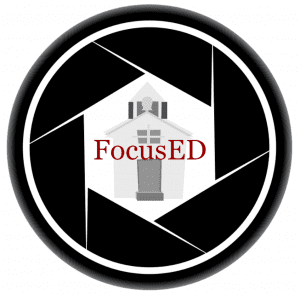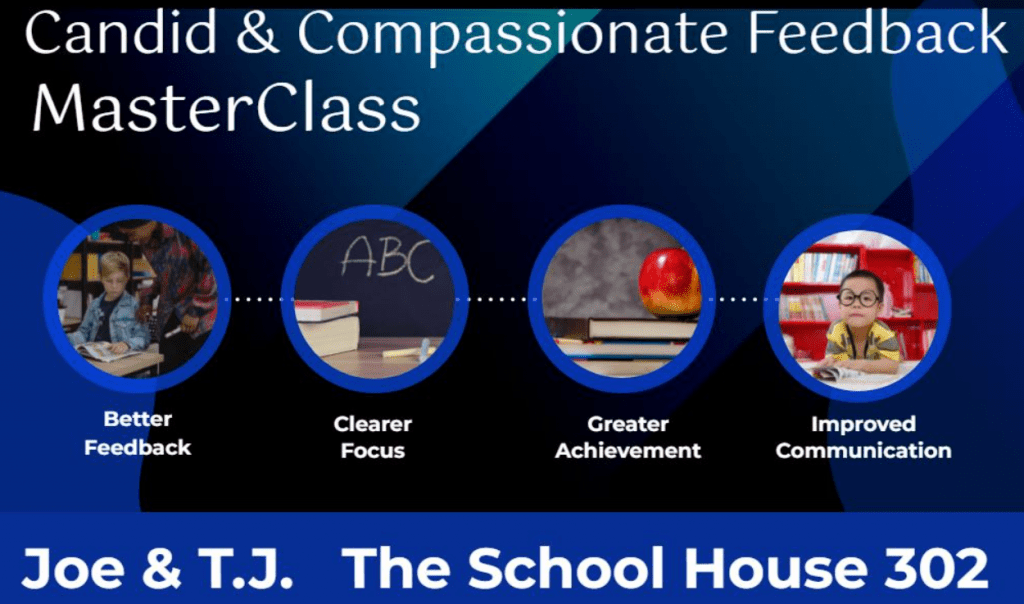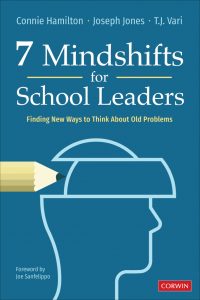
School Leaders: 5 Ways to Show More Support To Create the School Culture that Teachers and Students Need
Charles leaned back in his chair after a long week, feeling the weight of his school community’s needs. All things considered, the school has handled the pandemic well. He looks over at this year’s motto hanging on the wall, Stronger Together, and is reminded of how much they have overcome. He also knows that his teachers and staff are tired. The uncertainty in the world and in their community creates an intensity that makes one hour feel like two.
He also sees it among his students. Their reactions to situations, or should he say, overreaction indicates frustration. A minor situation escalates fast, and students are on edge. Resilience and grit are needed now more than ever. Although the pandemic seems to be in our rearview mirror, the toll it has taken on many is significant. And some students are wrestling with how to move forward, which is evident in how easily they want to give up on things.
Despite all of this, Charles is confident in his school and the great people with whom he works. He also realizes that as the school year winds down, they must finish strong. The next three months have to be incredible. Understanding Kahneman’s peak-end rule, Charles knows that a strong end to this school year will help start next year even stronger. Although there’s no easy answer, he understands that he has to connect with those he serves, hear from them, and truly listen so that he can build a culture of support. If he wants to lead better and support his community, he has to know what they are thinking and feeling.
Listening for Greater Support
Getting individuals to open up and be candid, requires a level of trust within the school culture. The upheaval and loss that the pandemic brought with it is hard to fathom and impossible to quantify. Effective principal leadership is needed more than ever, and it starts with listening to the individuals we are actually working to serve.
- Teachers: Voices from the classroom
- What are teachers experiencing in the classroom?
- Probe to uncover insights about their experiences and their students’ needs.
- Support Personnel: Voices from the staff
- What are support staff experiencing?
- Probed to uncover insights about their experiences and their students.
- Students: Voices from the students
- What are students experiencing within the school?
- Probe to uncover insights about their experiences.
Figure: 1 Model for Voices to Hear

The intent to listen is to truly uncover the experiences that people are having. Great principal leaders use an inquiry-based approach to better understand what is occurring so that effective decisions can be made. There are a few ways to achieve this in schools. Although online surveys are efficient and effective, we suggest a couple different methods–from surveys to group discussions to one-on-one conversations. The purpose of each is to gather as much accurate and real data as possible to focus the work at the most granular level. This is what will drive support because school leaders will know what to prioritize based on the data. Without the information from surveys and conversations, we become susceptible to working hard but working on the wrong stuff.
For example, Charles may decide to leverage group discussions with the support staff, school counselors, nurses, deans, etc. to gain a clear account from what they are experiencing and what they are also seeing in their students. This valuable information can provide insight that can support the social and emotional efforts in the school. Leveraging incredible resources like CASEL is vital, but only if it is aligned to needs within the school. We think of this process–identifying trends and key points of information–similar to what we find in the medical field. General practitioners are invaluable and treat the everyday needs of the community, but if our issues are no longer cured with that approach, we need a specialist–someone who is able to take an acute approach.
We’ve generated 5 key areas that need to be considered in every conversation. The goal is to transform the conversations into useful, actionable next steps for school leaders.
Every Voice Heard in Every Conversation
One of the initial fundamental aspects of great conversations is informative and open dialogue. Above all else, school leaders need to welcome ideas and suggestions. That’s why it’s our first principle of the five.
#1. Welcome ideas and suggestions from everyone
Unfortunately, this doesn’t come naturally to all school leaders. To complicate matters, creating dialogue among staff is a skill that many educators haven’t formally developed. This results in many group conversations defaulting to those who are willing to talk or those who somehow feel obligated to represent the group. This is why our conversations require norms. We’re not talking about the typical meeting norms but rather ones that are designed to create conversation, respect, and openness.
Conversation Norms
- Don’t interrupt–Allow individuals to complete their thoughts.
- Focus on experiences–Using “I” is encouraged.
- Accept non-closure examples–Uncertainty is ok.
- Suspend judgment–Avoid value statements.
- Honor confidentially–Support and require privacy.
These norms are crucial because not only will they establish ground rules, they will also build a culture of rapport. This is crucial for idea sharing and hearing suggestions. It’s so easy to fall into the trap of putting up barriers and finding a reason to say, “yeah, but.” This is to be avoided so that the group can learn how to rumble.
This brings us to our second key principle, which is being comfortable with discussing uncomfortable ideas and topics, even those that may be taboo. School leaders have to welcome the discomfort that comes from hearing something that isn’t ideal.
#2. Feeling comfortable sharing difficult issues
Difficult issues are just that, difficult. Difficult to discuss, explain, and understand. This is only compounded by our natural human hesitancy to deal with conflict. To start creating a level of comfort, we encourage teams to use the 2 Ts:
- Trust and Truth
Trust and truth are imperative for open dialogue and getting to the core of situations. It’s easy to meet and easy to have conversations, but digging into the core of an issue is challenging. Communicating in a spirit of trust allows people to have confidence in one another, while the truth ensures that people are going to express how they feel and share their thoughts and ideas. Trust and truth come from our ability to be candid with one another. Candor is a skill; honesty is about our character. Everyone can learn to be more candid to support a level of comfort with difficult issues, but it takes practice.
To build an environment that is supportive of the two Ts school leaders must provide time and space.
#3. Providing time and space to listen
Have you ever compared the game of baseball to basketball? One is a game of space and the other time. The fast paced, high octane nature of basketball, brought on by the shot clock, could not be any different than a sport with no time frame, just rules that determine the beginning and end. Great meetings with open dialogue do both. The meeting length provides ample time to meet the agenda items while there is no pressure to get through all of them.
The root of frustration in many meetings is due to the need to meet only to have enough time to go over cursory information or force decisions. Getting through the agenda doesn’t mean that any of the items get resolved. One antidote to this, as Joel Garfinkle writes, is to, “focus on what you’re hearing, not what you’re saying. People who shy away from conflict often spend a huge amount of time mentally rewording their thoughts.”
Schools that have a culture of support almost always report a sense of feeling like everyone is on the same team.
#4. Feeling like we’re on a team
The power of a great team is found in their centralized focus on a clear goal. That goal is supported by core values that guide and remind everyone of #2 and #3 from above. What we also love about teams is that they know how to celebrate. Could you imagine the culture and atmosphere of schools if the high five became as prevalent in schools as it did on the athletic field? What a difference that would make for feeling like we’re playing on a team.
Without going into too much baseball history, it is believed that the first high five occurred between Dusty Baker and Glenn Burke of the L.A. Dodgers after Baker hit his 30th home run in the final game of the season. This was the first time in baseball history that 4 players ended the season with at least 30 home runs in a single season. We can learn a great deal from sports and the one thing that requires zero training, no degree, and no talent is celebrating others at work. Encourage conversation, thank people for their contribution, recognize when someone is out of their comfort zone, and praise as often as possible.
The fifth component is the linchpin, making sure that people have the resources they need to do their jobs well.
#5. Ensuring people have the resources to do their jobs well
This is the part of the conversation where school leaders simply need to be up front and ask people if they have what they need to do their jobs well. Asking is the easy part, listening and acting on the information presents the challenges. Do teachers have the following?
- Classroom resources to support the curriculum
- Technology to enhance instruction
- Instructional materials that promote student academic success
- Assessments that are aligned to standards
- Time in PLCs to discuss student achievement
These areas represent fundamental needs for staff to thrive in their working environment. In her book, If You Don’t Feed the Teachers They Eat the Students!: Guide to Success for Administrators and Teachers, which is filled with stories and valuable insight, Dr. Neila Connors shares practical ways to support teachers and build an incredible school culture.
Measuring the Feeling of Support in Schools
One way to know if people feel supported in general is to ask. Great leaders go beyond asking and they measure. We always talk about measuring what matters, but few leaders measure whether or not the culture is one that can be described as supportive.
That’s why REPSS has an entire section dedicated to support, and all of the questions are about the five principles from above. The support section questions are below, and you can get the whole survey in our Building a Winning Team book.

Reputable, Effective, Perception Survey for Schools
Support (REPSS)
- Our school culture welcomes ideas and suggestions.
- I feel comfortable going to my administration with issues.
- My supervisor respects my suggestions and ideas.
- The principal provides ample opportunity for suggestions and ideas regarding school initiatives.
- I feel like I’m on a team when I come to work.
- I have been recognized recently for my contributions to the school.
- My classroom is designed to do help me do my job well.
- My classroom is equipped with technology to facilitate student learning.
- I have the necessary instructional materials to successfully meet the needs of all my students.
- I feel supported by the administration.
As always, let us know what you think of this with a like, a follow, or a comment. Find us on Twitter, YouTube, iTunes, Facebook, & SoundCloud. And, again, if you want one simple model for leading better and growing faster per month, follow this blog by entering your email at the top right of the screen.
TheSchoolHouse302 is about getting to simple by maximizing effective research-based strategies that empower individuals to lead better and grow faster.









 7 Mindshifts for School Leaders: Finding New Ways to Think About Old Problems.
7 Mindshifts for School Leaders: Finding New Ways to Think About Old Problems. 


